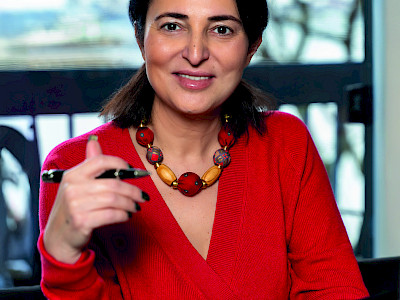
The ability to think unobstructed in society, which is ideologically thoroughly, the ability to perceive and translate the truth in any life situation, see in the mirror of time undistorted by the falsifications faces of those, who had become almost typical, and thus anticipate the political and social transformations – is this not a prophetic gift? Only in the era of radical change, we had the opportunity to appreciate the work of the whole life of our legendary compatriot Ramiz Abutalibov – a diplomat, historian, holder of the Order of the Legion of Honor. For many years he lived far from his native land, without breaking the umbilical cord with her for a moment, carefully collecting the lost pages of her history, giving the warmth and memory of their long lost homeland to the forced "defectors"...
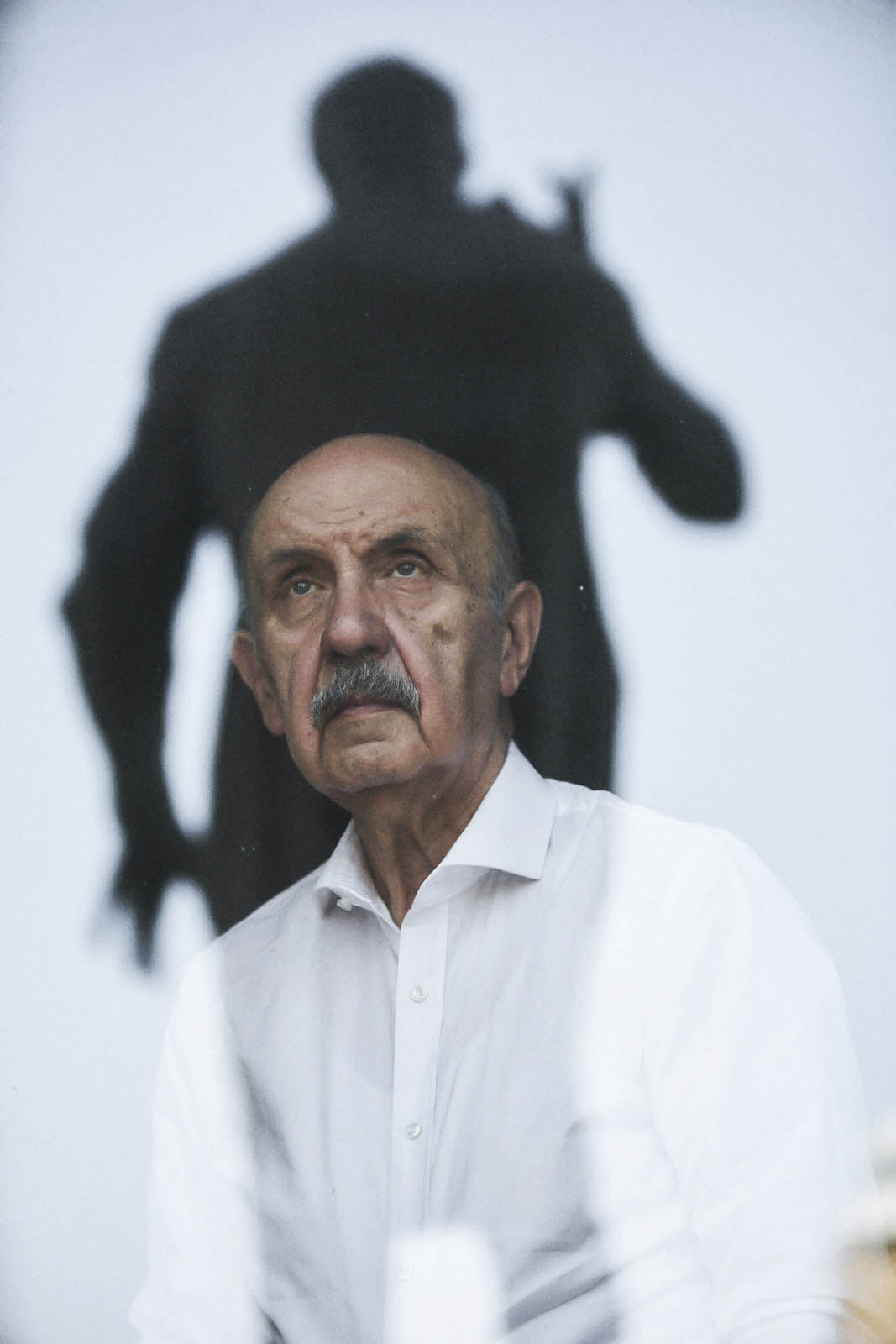
Ramiz Abutalibovich, you are one of the most famous Azerbaijani diplomats, the first Azerbaijani to be employed at UNESCO. And what were the childhood of the Soviet boy Ramiz and the youth of student Abutalibov, who was preparing to become a geologist? What were you dreaming about then?
I was one of those Baku boys, who were rushing around the yard as a noisy crowd. My childhood is a game of war, fights, hobby for football, swimming in the famous Baku bathhouse... We all dreamed of being pilots and scouts, and the movie “Feat of Scout”, with Kadochnikov in the lead role, was watched twenty times. A little later, I became interested in collecting stamps, and enjoyed going to trophy movies. In the eighth grade, first love happened; at the same time, the beginning of the winding along Torgovaya and the boulevard... In short, everything was as it should be. In 1954 I graduated from high school and the acute question arose: where to go? My parents wanted to see me as a doctor, and I was striving for the history department of Azerbaijan State University. But they were against it, and in the end I made a compromise: I entered the then fashionable geological-geographical faculty. From the first year, I myself earned my own pocket expenses – I worked as a freelance correspondent for the newspaper “Youth of Azerbaijan”, where my friend Akshin Kazimzade, later one of the best journalists of Azerbaijan, attached me. In 1961, I married my fellow student Tamilla Tairova, and three years later we, the parents of two daughters, Nigar and Sevil, received a two-room apartment from the State Committee for the Coordination of Research and Development, where I worked by that time. After I was transferred to the State Committee in the Department of Science and Technology Ministers Council. And here in 1968 my one more wish came true: I entered the department of international organizations of the All-Union Academy of Foreign Trade. Being a third year student, I took part in a competition for filling a vacancy in the UNESCO Secretariat in Paris. There were 27 job seekers, but I turned out to be a winner, and on December 15, 1971, I flew with my family to Paris. The first trip was completed on December 31, 1979, and the second trip to UNESCO lasted from August 1985 to February 1993.
So, in the early 1970s, you were on duty in the Western Europe inaccessible to most Soviet people. How did you adapt? What was the most difficult? How hospitable was romantic Paris?
The most difficult year is the first: without relatives and friends, with poor knowledge of the laws and customs of the country. For example, the next morning after arriving I went to the bakery and asked quite a seemingly logical question: “Is the bread fresh?” The seller, who was also a baker, was outraged, the people around looked at me with amazement: where could the stale bread in French bakery come from?! There were many such blunders. The absence of the familiar environment and native people crushed... I remember that in December 1972 a concert of Soviet artists, dedicated to the 50th anniversary of the founding of the USSR, was held in Paris. A trio came from Azerbaijan: Islam Rzayev, Haji Mammadov and Gabil Aliyev. As soon as they began to perform, we all shed tears... Of course, everything gradually returned to normal: we and the children had friends, and a lapping with colleagues from different countries was successfully done at work. Well, Paris is always Paris. We loved this city, and it reciprocated. You can’t say better than Ernest Hemingway: “Paris is a holiday that is always with you”.
In Paris, you made friends with immigrants. Was it easy for them to contact a member of the Soviet diplomatic service?
Both they and I were cautious at first. We, Soviet citizens, read a lot in the press about the actions of foreign special services. Suffice it to recall the famous “leap into freedom” by Rudolf Nureyev in 1961, in Paris, or the publication of “Doctor Zhivago” by Boris Pasternak. And our fellow emigres witnessed the operations of the Soviet special services: for example, the abduction in the same Paris, in broad daylight, of the royal generals Kutepov and Miller, the murder of Abdurahman Fatalibeyli-Dudanski, the head of the Azerbaijani section of Radio “Svoboda” (“Liberty”), in Munich. My first meeting with Azerbaijani political emigres took place after the aforementioned concert. Behind the scenes, I met representatives of the second wave of emigration – those who did not return to their homeland in 1945, after World War II, Gadir Suleymanoglu and Tofig Tagiyev. And then they introduced me to the first wave of emigrants and their descendants – for example, Mamedbek Magerramov, a member of the delegation of the Azerbaijan Democratic Republic at the Paris Peace Conference of 1919-1920. I was greatly enriched by communication with Alekper, the son of Ali Mardan Bey Topchibashi, the head of the Azerbaijani delegation. Today, it is Alekper Bey that we owe to, for preserving the history of documents on the activities of the delegation. I was fortunate enough to be friends with Uzeir Bey's nephew, the son of his brother Jeyhun Bey Hajibeyli Timuchin, the famous turkologist Irene Hanum Melikoff, artist Selim Turan – son of Alibek Huseynzade, writer Banin – granddaughter of Shamsi Asadullayev and Musa Nagiyev, Ilkhan Zilly – a representative of the famous Zylgadarov and Shamkhor families and others. These meetings have allowed me to learn a different history of Azerbaijan. If it were not for Paris, I would hardly have been able to make friends with Iranians from Azerbaijan: Huseyn Azarmakhd, one of the founders of the “Azerbaijan House” Association in France and the “Franco-Azerbaijan Chamber of Commerce”, the compiler of the first “Explanatory Dictionary of the Azerbaijani language” (using Arabic graphics) Mammadali Tajahmadi, the world-famous photo artist Reza Deghati and others.
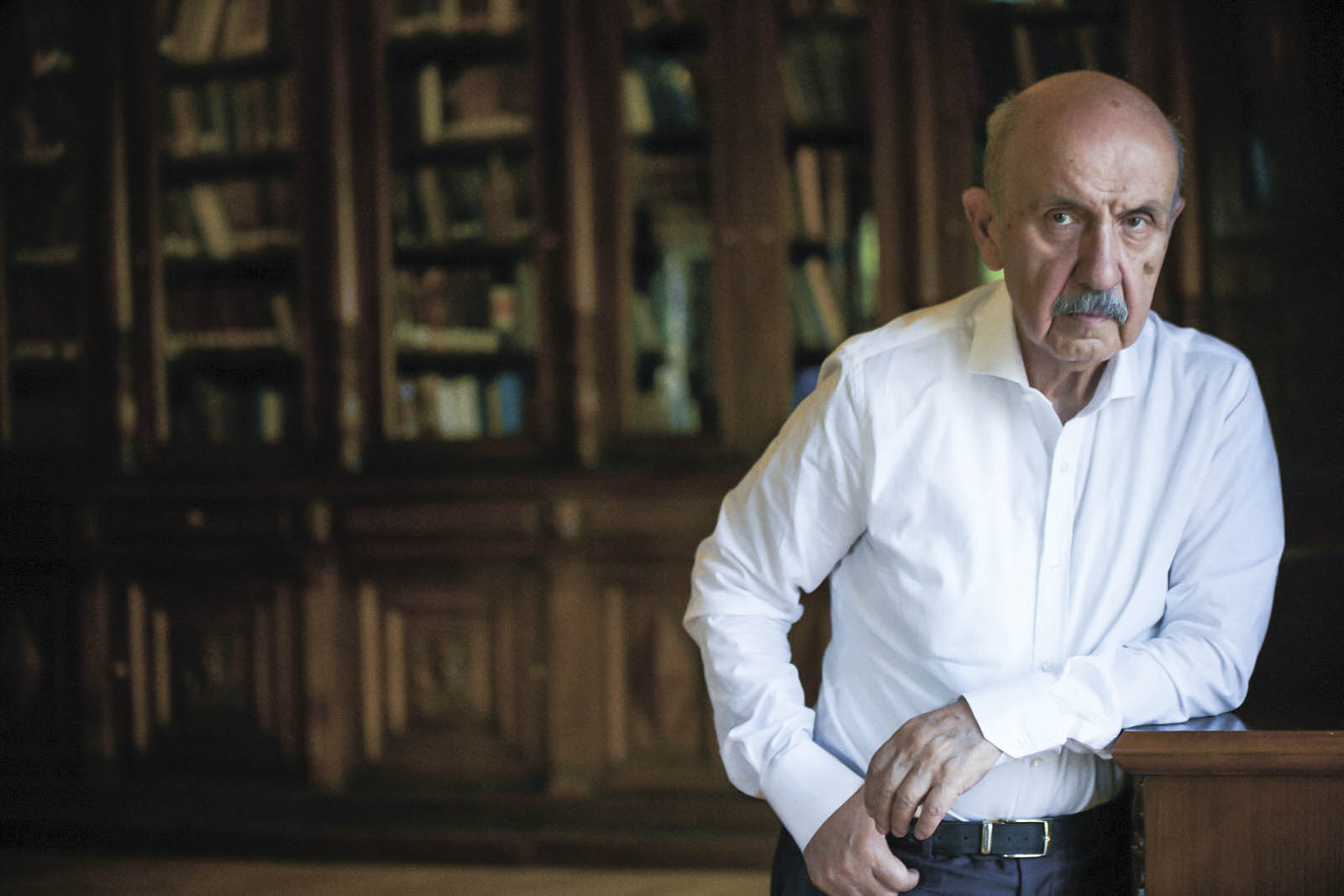
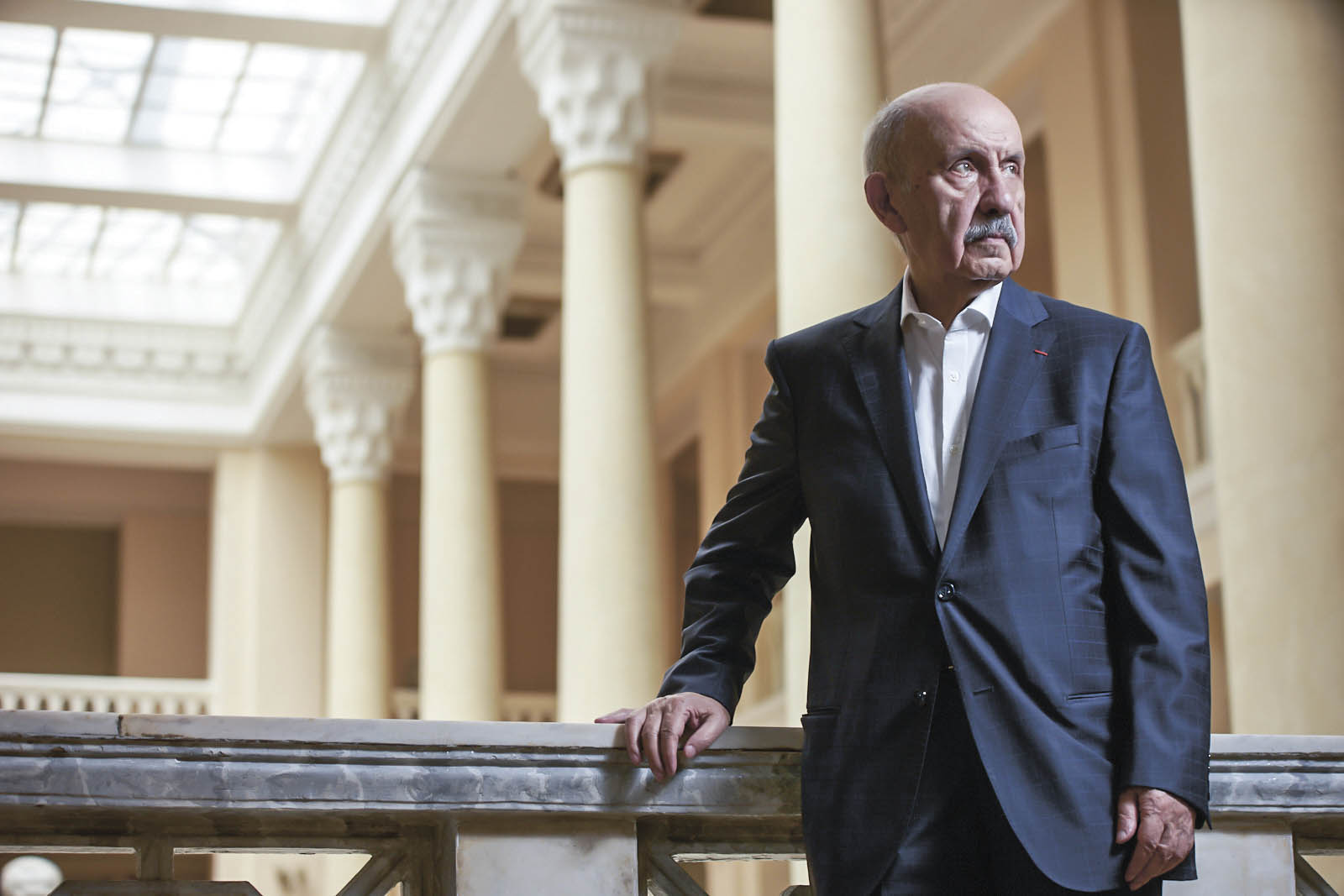
Thanks to you, the Azerbaijani public learned about the fate of their compatriots who happened to be in exile by chance. You brought home unique, priceless rarities: letters, documents, articles, pictures... What difficulties did you encounter along the way?
I was guided by a clear rule: never ask anyone for anything. But if someone from the emigrants passed through me a gift of any document or thing, then I made the transfer in the most transparent manner: we made the act, then I was interviewed by the media, and the emigrants through their relatives received appropriate information. Many years have passed, and the difficulties have been erased from memory. But there is a wish: I would very much like to see everything that was brought once in exhibition format – the Jeyhun Bey Hajibeyli’s archive, part of the Ali Mardan Bek Topchibashi’s archive, paintings by Azerbaijani artists, the ancient Azerbaijani carpet from the Mamed beg Magerramov’s collection, copies of Banin's correspondence with Bunin, three paintings by Aivazovsky, a portrait of Lenin by Philip Malyavin and others.
How do you remember the writer Banin (Umm El-Banu)?
She was a real Parisian – elegant, flirty, playful, which was very good for her, and the same as the city in which she lived, she was elusively changeable: now strict, serious, simply reckless, now proudly inaccessible, sociable, talkative... She visited us in our house, on Suffren Street, 56. She gently treated my wife Tamilla and daughters. And we visited her modest apartment on Loriston Street, 40, where Banin was once visited by two outstanding talents of the 20th century who left a special mark on her life and work: German writer, philosopher and entomologist Ernst Jünger and great Russian writer, Nobel laureate Ivan Alekseyevich Bunin. Our last meeting took place shortly before her death (October 23, 1992) in a hospital on Chardon Lagache Street, in the same 16th arrondissement, where young Umm el-Banu had once begun to conquer Paris.
When the Karabakh conflict was in full swing, you released four books to acquaint the foreign reader with the real state of things. Did they find a response?
Of course. To some extent, we compensated for the lack of objectivity that existed in the West regarding the events in Karabakh, and tried to provide our foreign compatriots with reliable information and familiarize them with various aspects of the Karabakh problem. These books attracted both a broad reader and conflict resolution specialists. French magazines "Herodotus" and "Actuelle", British "Chronicle of Central Asia and the Caucasus", "The Central review" and other publications devoted their attention to these books.
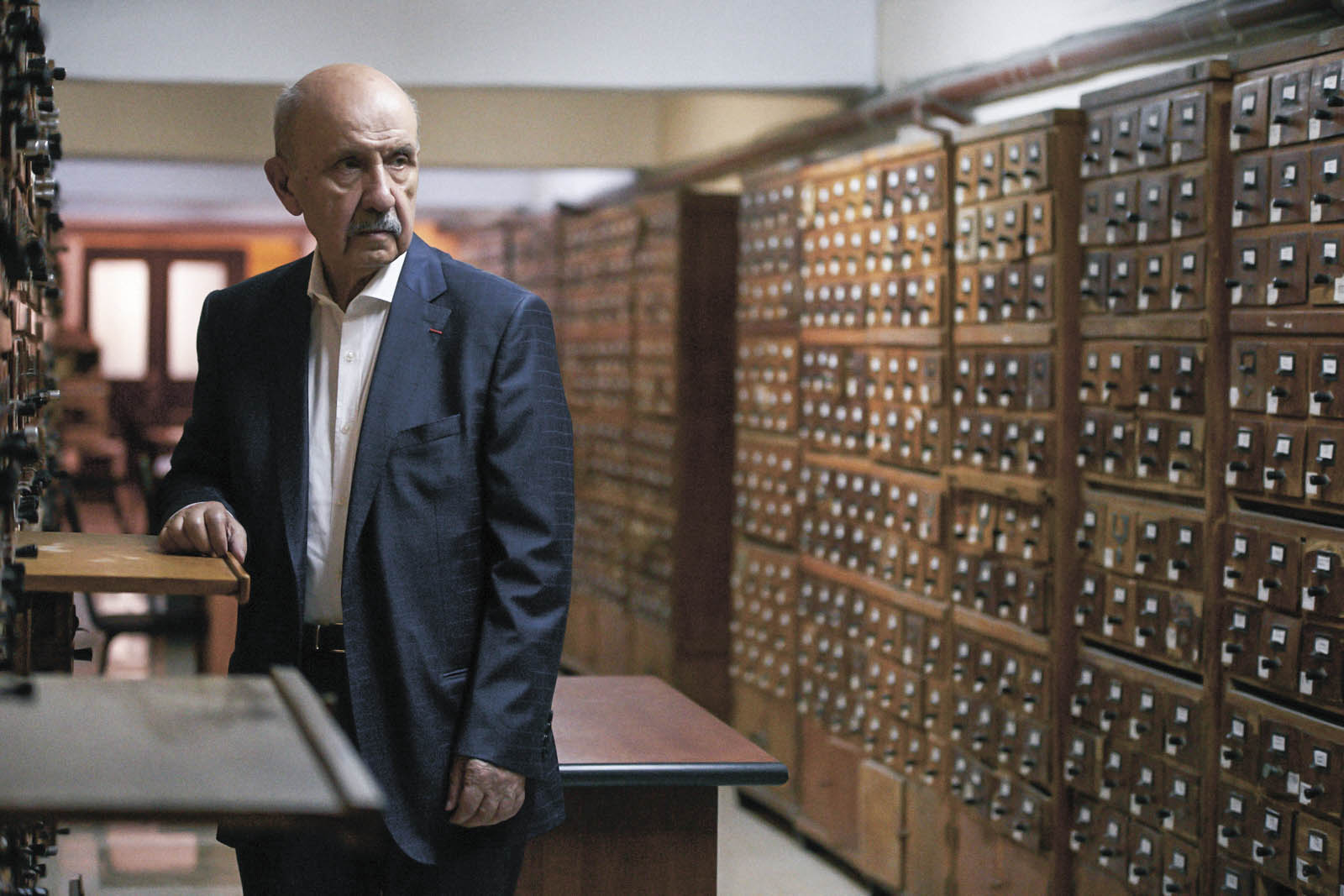
You also became the author of books about Azerbaijanis who are members of the Resistance movement, immigrants from among the representatives of ADRs. Did you have to conceal or veil some facts in the process of writing these books?
Before the adjustment, publicity Soviet researchers tried to create a negative image of a political emigrant. But in the late 1980s, when the iron curtain began to lift, the situation changed – Magazines like “Ogonek”, “Moscow News”, “Literary Gazette” and others began to publish articles with a positive assessment of the activity of political emigrants. But concerns still remained, therefore, I published my first short article about the Azerbaijani emigration in the newspaper “Ədəbiyyat və İncəsənət” under another name. Later, but before the collapse of the USSR, in the same newspaper I managed to publish a couple of poems of Joseph Brodsky in the translation of the poet Aydin Ulukhanli. This was the first publication of Brodsky in Azerbaijani. In the “Odlar yurdu” newspaper of the “Vətən” Society, the “This is the first time” section appeared, the most active author of which was the late Movsum Aliyev. Somewhere in 1990, in both Russia and Azerbaijan, publications on political emigration began to grow. However, one topic has not yet received a piece of lighting: participation of Soviet people in the partisan movement of France and Italy. It is known that they appeared in Europe as prisoners of war, migrant workers or soldiers of the eastern legions of the Wehrmacht. To determine who is who among them, it will be possible only after the opening of the archives of the Ministry of Defense and the KGB of the USSR and relevant departments of the former Soviet republics.
Ramiz Muallim, a man who advocated the nomination of Alim Gasimov for the title of the best performer of the world, who participated in the inclusion of mugham in the List of Intangible Cultural Heritage, organizer of a huge number of concerts and exhibitions (the list can be long), is surely in love with art. Tell us about your musical and literary preferences.
In all these promotions, I acted as a producer and promoter. To prepare documents on Azerbaijani mugham in 2001, we invited a UNESCO expert, French musicologist, Dr. Jean Dühring. He was assisted by our specialists: Sanubar Bagirova, Eldar Mansurov, Jahangir Selimkhanov and others. For the project “Icheri Sheher”, professors of Istanbul University Nevzat Ilhan, Jafar Giyasi were invited in 1999; Adalat Mamedov, Rizvan Bayramov and others also participated in the project. Now there are many specialists in Baku who prepare documents for the World Heritage List in foreign languages, and in the late 1990s we had to invite foreign experts. As for preferences, in childhood my parents sent me to a music school, to the department of folk instruments. Mugham lessons were taught by the famous teacher Mirza Mansur Mansurov. Because of his age, he could no longer attend school, and we ran to his home, to the Boyuk Gala. I studied at this school for four years, but I kept my love for mugham for life. And in the middle of the last century all Baku youth was fond of jazz, every day I listened to "hostile radio voices"... In the literature now I give preference to memoirs and historical chronicles. From a recent reading: Boris Messerer’s memoirs “The Flash of Bella”, from the WFL series – “Boris Pasternak” by Dmitry Bykov, Anna Akhmatova’s diaries “My husband Gumilyov, Gumilyov's father”. Now I am reading Sabir Rustamkhanly's novel “Ascent to the block” published in Moscow.
Once, on your initiative, a personal exhibition of the then little-known artist Ashraf Murad was held in Baku. Do you follow the works of modern Azerbaijani artists?
Unfortunately not. But I regularly visit exhibitions of Azerbaijani artists in Moscow. I was at the beautiful exhibition of artists of the Absheron school (among them Ashraf Murad’s canvases), personal exhibitions of Tahir Salahov, Rasim Babayev, Farhad Khalilov and others. By the way, the first complete catalog of works by Ashraf Murad was published in Moscow, and the presentation was held in the Aidan Gallery.
Your colossal research activity does not stop even for a day. Do you currently have a priority area to study?
The priority area is the history of the Azerbaijani emigration. One of my friends, expert on the history of the Caucasus, Dr. Georgy Mamulia, with the support of the Russian representative office of the Heydar Aliyev Foundation, published the four-volume “AM Topchibashi. The Paris Archive, 1919-1940”, and now we are preparing for publication of collection of documents “Azerbaijani political emigration at the initial stage of the Cold War (1945-1953)”, it is going to be released later this year.
In the final part of your book “Years and Meetings in Paris”, you confess your love for the French capital, which presented you with “the intellectual key to explain complex conflicts”. Do you often return to Paris now - the city that once revealed to you so many secrets?
I want to quote the words of Hemingway again: "Paris is never ending, and everyone who lived there, remembers it differently." Every year, in September, my wife and I return to Paris. We want to continue this tradition in 2019 too.
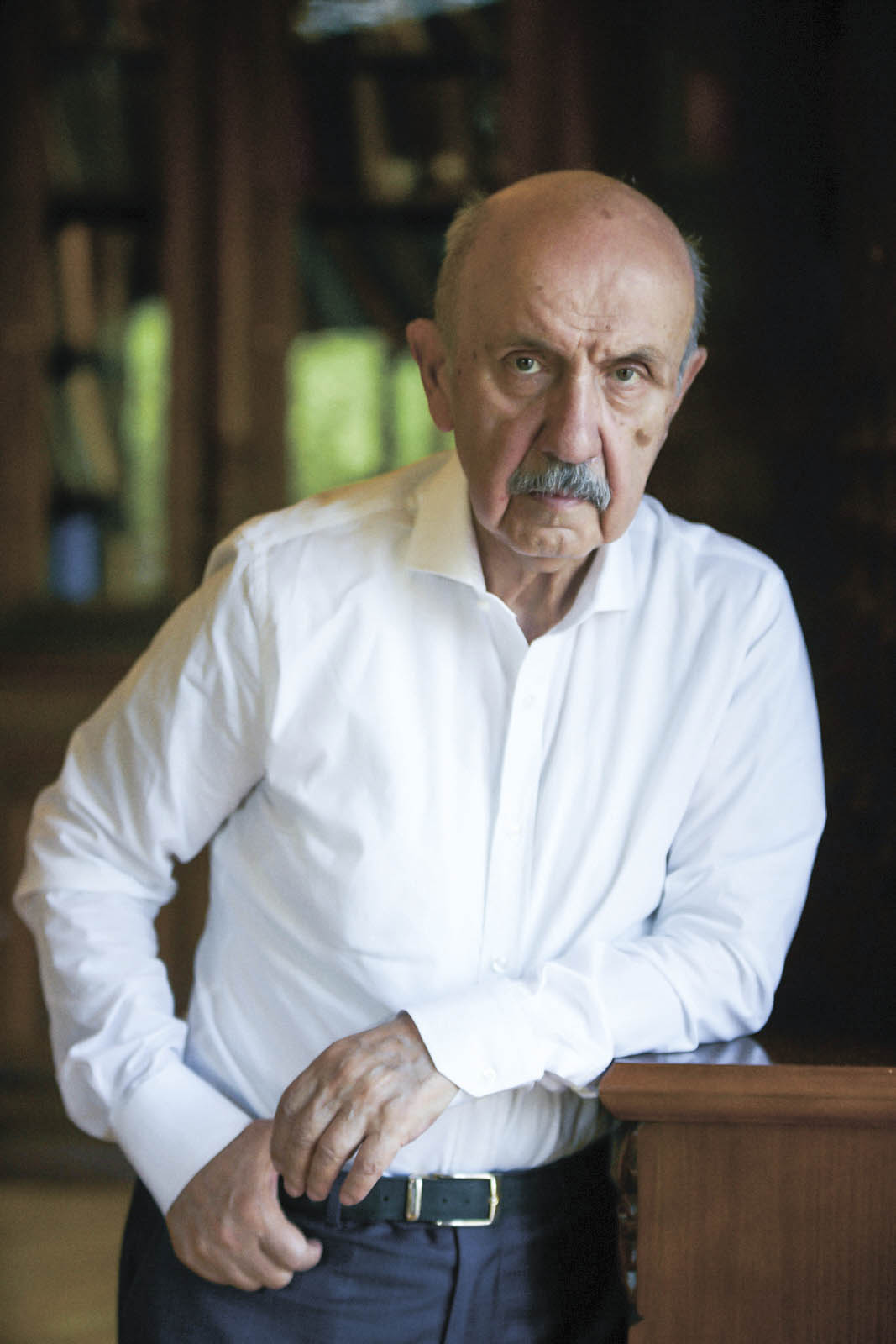
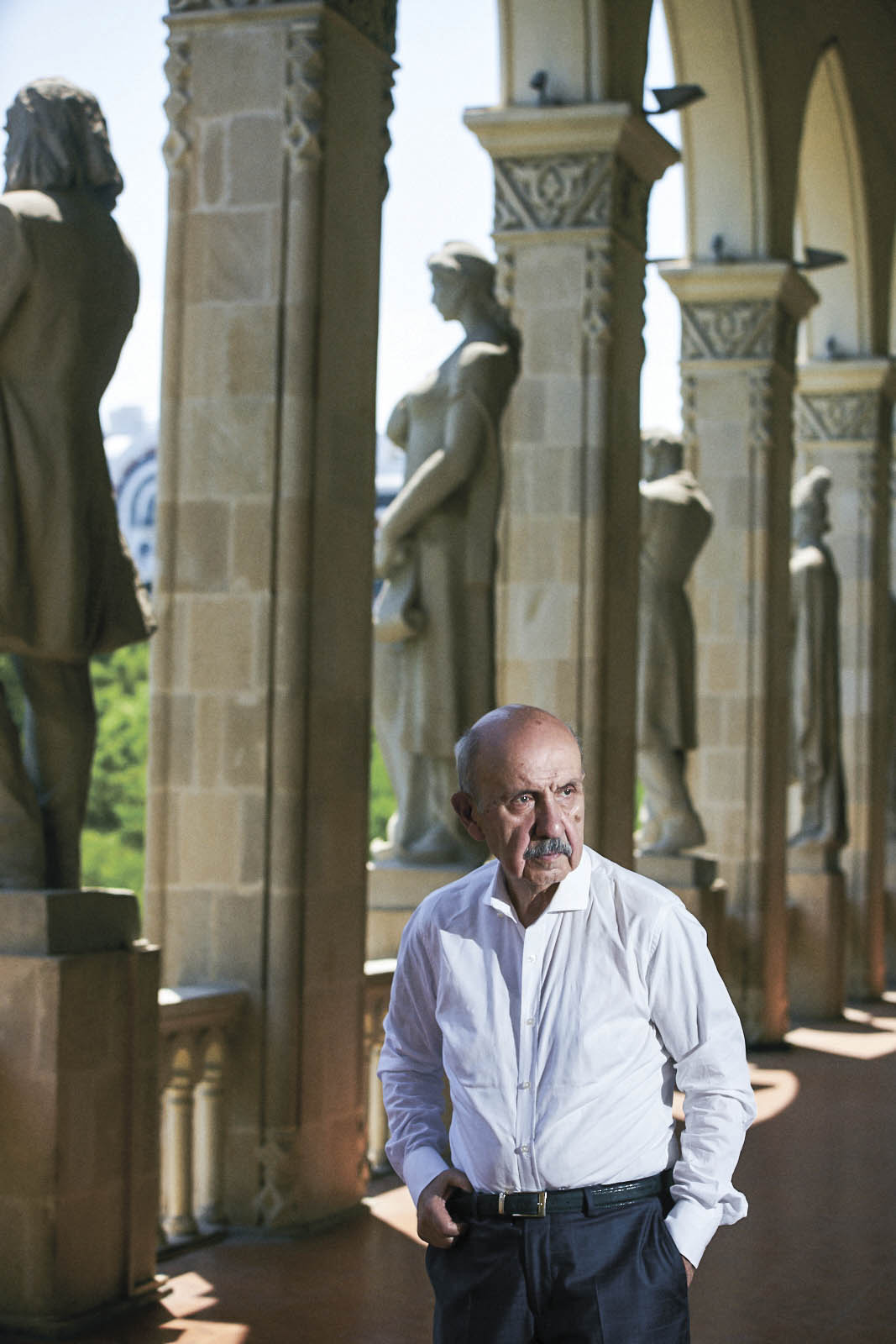
Interview: Nigar Maharramova
Photo: Adil Yusifov


